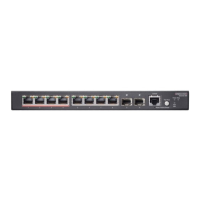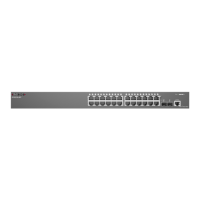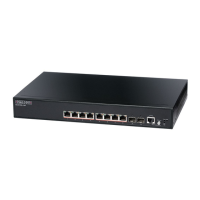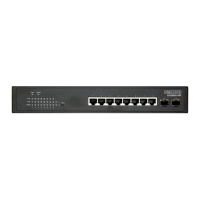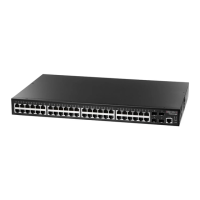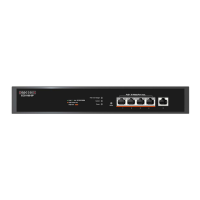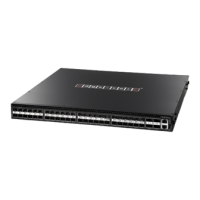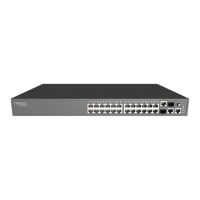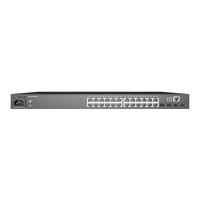Chapter 5
| SNMP Commands
SNMPv3 Commands
– 172 –
auth
- Uses SNMPv3 with authentication.
md5
|
sha
- Uses MD5 or SHA authentication.
auth-password - Authentication password. Enter as plain text if the
encrypted
option is not used. Otherwise, enter an encrypted password.
(Range: 8-32 characters for unencrypted password.)
If the
encrypted
option is selected, enter an encrypted password.
(Range: 32 characters for MD5 encrypted password, 40 characters for SHA
encrypted password)
3des
- Uses SNMPv3 with privacy with 3DES (168-bit) encryption.
aes128
- Uses SNMPv3 with privacy with AES128 encryption.
aes192
- Uses SNMPv3 with privacy with AES192 encryption.
aes256
- Uses SNMPv3 with privacy with AES256 encryption.
des56
- Uses SNMPv3 with privacy with DES56 encryption.
priv-password - Privacy password. Enter as plain text if the
encrypted
option is not used. Otherwise, enter an encrypted password.
(Range: 8-32 characters)
Default Setting
None
Command Mode
Global Configuration
Command Usage
◆
Local users (i.e., the command does not specify a remote engine identifier)
must be configured to authorize management access for SNMPv3 clients, or to
identify the source of SNMPv3 trap messages sent from the local switch.
◆
Remote users (i.e., the command specifies a remote engine identifier) must be
configured to identify the source of SNMPv3 inform messages sent from the
local switch.
◆
The SNMP engine ID is used to compute the authentication/privacy digests
from the password. You should therefore configure the engine ID with the
snmp-server engine-id command before using this configuration command.
◆
Before you configure a remote user, use the snmp-server engine-id command
to specify the engine ID for the remote device where the user resides. Then use
the
snmp-server user
command to specify the user and the IP address for the
remote device where the user resides. The remote agent’s SNMP engine ID is
used to compute authentication/privacy
digests from the user’s password. If the
remote engine ID is not first configured,
the
snmp-server user
command
specifying a remote user will fail.
◆
SNMP passwords are localized using the engine ID of the authoritative agent.
For informs, the authoritative SNMP agent is the remote agent. You therefore

